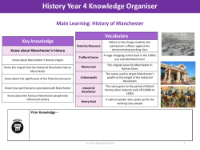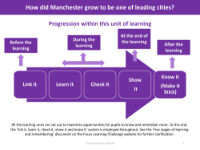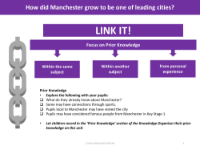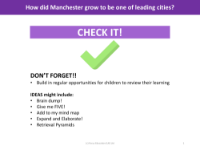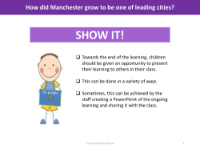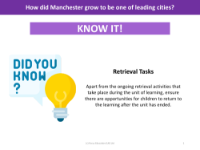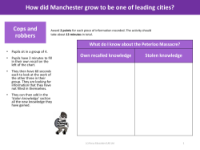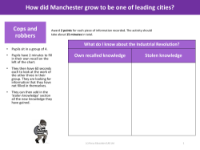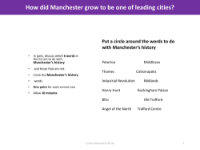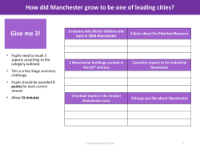Long-term overview - History of Manchester - Year 4
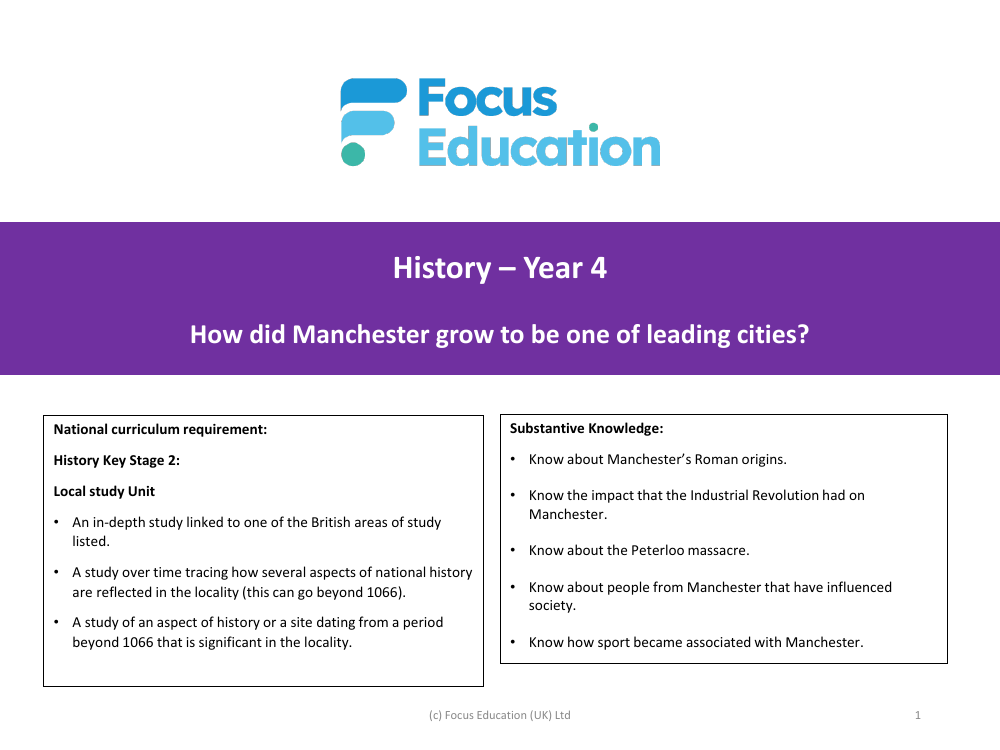
History Resource Description
The Year 4 history curriculum provides a comprehensive exploration of Manchester's rich past, offering students a chance to delve into the city's significant role in British history. As part of the National Curriculum's Key Stage 2 local study unit, pupils undertake an in-depth study of Manchester, tracing its evolution from Roman times to its pivotal role in the Industrial Revolution. The curriculum covers the city's Roman origins, the transformative effects of industrialisation, the Peterloo Massacre's historical importance, influential Mancunians, and Manchester's association with sport. Through this localised lens, students gain insights into broader national historical themes and the city's development into a leading urban centre.
Disciplinary knowledge is a key component of the curriculum, with a strong emphasis on chronology and causation, historical enquiry, and interpretation and significance. Students learn to place events on a timeline, understand the cause-and-effect relationships of major events like the Industrial Revolution, and use timelines to sequence historical events and figures. They also develop skills in distinguishing between primary and secondary sources, using various sources to gather information, and constructing informed responses about historical life aspects. Additionally, the curriculum encourages critical thinking by having students investigate different historical accounts, recognise bias and exaggeration, and discuss the lasting impact of past actions on contemporary society. This multifaceted approach to history education helps students grasp why Manchester earned the nickname 'Cottonopolis' and become a city of global renown.
